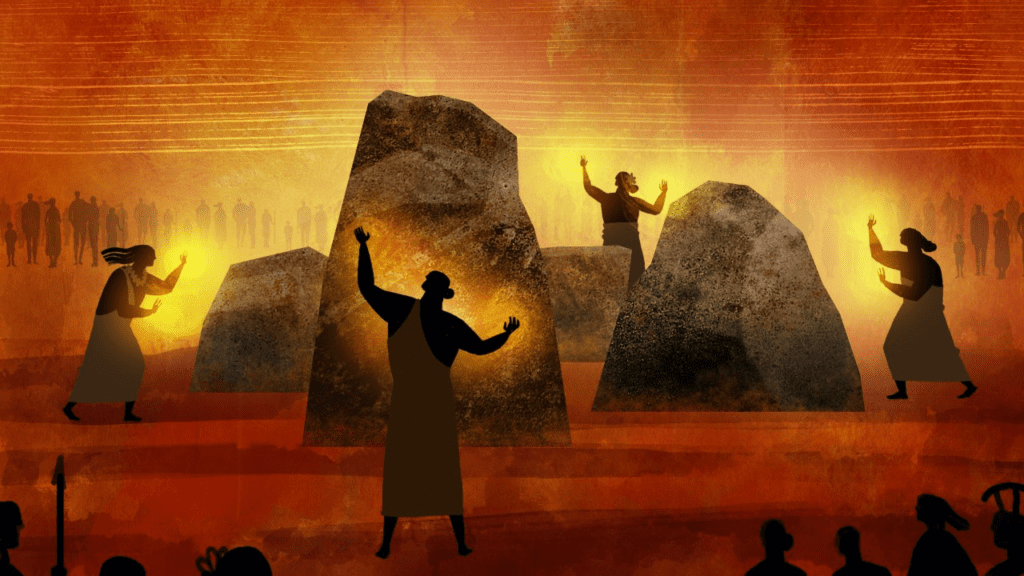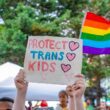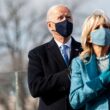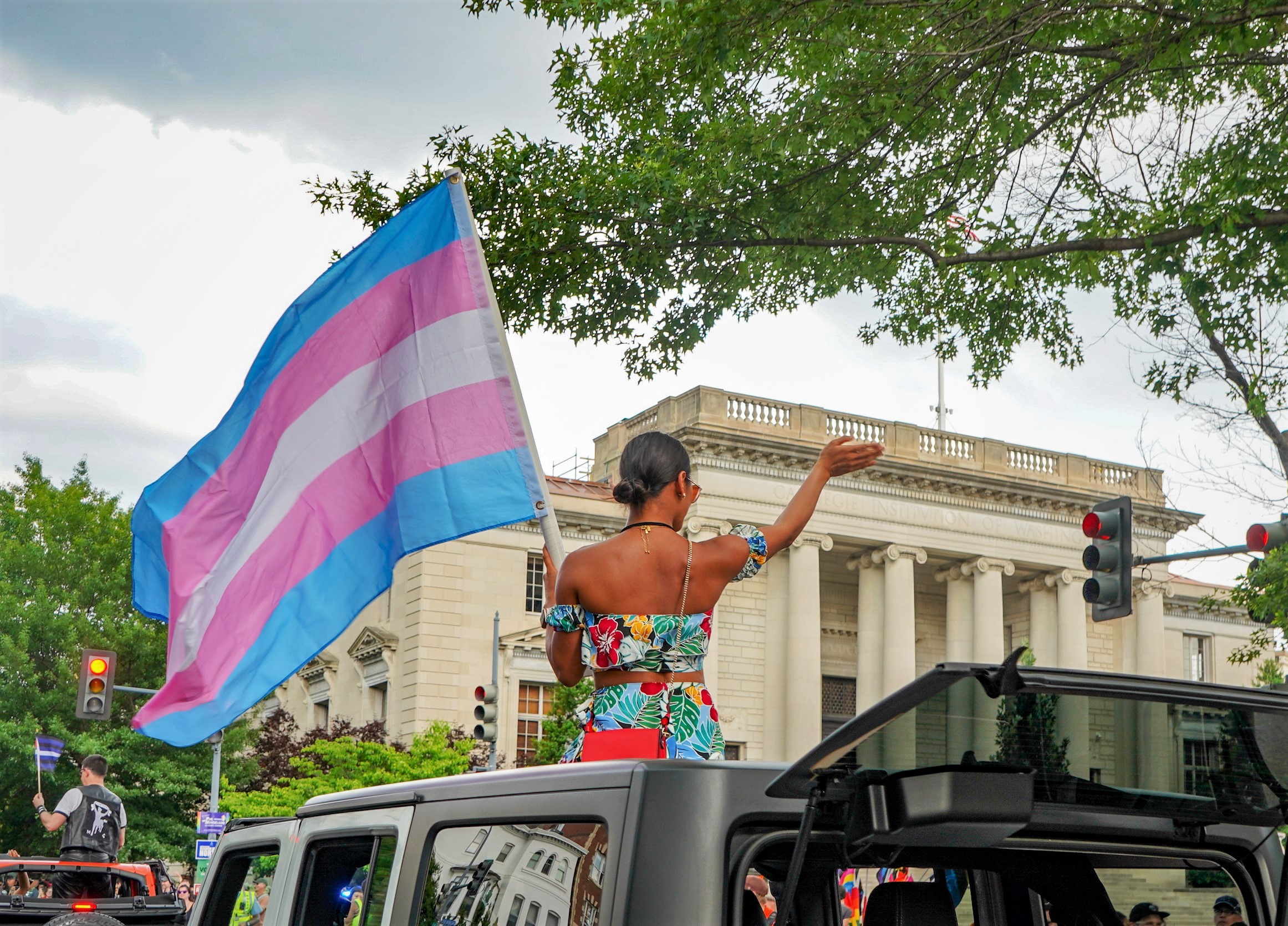Sign up here to receive The Yappie‘s weekly briefing on Asian American + Pacific Islander politics and support our work by making a donation.
2021 has been a record year for anti-transgender legislation in the U.S., with more than 114 bills targeting trans people and youth proposed across the country, according to GLAAD. State legislatures have introduced over 250 anti-LGBTQ bills in this year alone, per LGBTQ advocacy group Human Rights Campaign (HRC), and it's heightening anxiety among trans Asian Americans and Pacific Islanders.
Most of the legislation targets trans youth in access to health care and the ability to participate in gender-affirming sports. But it’s hurting trans people in more ways than one.
Some families living in states with these bills have “talked seriously” about fleeing, Axios’ Orion Rummler reports.
“[Moving would] be really complicated for us, but it's certainly not out of the question,” Amber Briggle, who lives in Texas and has a 13-year-old trans son, told NBC News. “My son always comes first.”
A 2021 survey by The Trevor Project, an LGBTQ youth suicide prevention center, found that nearly half of trans and nonbinary youth have seriously considered suicide. 94% of LGBTQ youth said recent politics have negatively impacted their well-being. It overlaps with anti-AAPI hate, too, in the intersectional nature of identity: 60% of Asian and Pacific Islander LGBTQ youth reported experiencing race/ethnicity-based discrimination in the last year.
AAPI LGBTQ youth report higher rates of depressed mood and suicidality compared to straight and cis AAPI youth, while AAPI trans and nonbinary youth are 3x as likely to attempt suicide compared to cis AAPI LGBTQ youth.
The Trevor Project
Violence against trans folks has seen a spike in recent years, with 2021 set to become the deadliest on record. Last year, HRC tracked a total of 44 fatal incidents against trans and gender non-conforming people. The advocacy group notes that “fatal violence disproportionately affects transgender women of color,” particularly Black trans women.
“We must create a ‘new normal’ where we embrace the leadership of BIPOC trans women and trans-led organizations, strengthen the alliances and partnerships that we have built up across movements and industries, and work to create a world where we are all alive, thriving and fighting for the liberation of us all,” Transgender Law Center Executive Director Kris Hayashi writes in an opinion piece for NBC News.
After a year that has seen a rise in both anti-Asian hate and transphobia, members of the queer AAPI community are taking action.
Speaking out
Writer and performer Alok Vaid-Menon has spoken out against hate targeting AAPI and queer communities. “What I would say to LGBTQ youth is that you should never have to compartmentalize yourself to make other people more comfortable: every part of you is essential,” they told The Trevor Project.
- “We need everyone—regardless of their identity—to condemn and resist this ongoing anti-Asian racism and homophobia and transphobia, and create a world where all are welcome.”
“[T]he epidemic of violence plaguing trans folks is inextricably connected to a larger epidemic plaguing everyone on the margins, from the state violence that Black and brown people face to the domestic and intimate partner violence that women and all genders face,” actor and trans rights activist Leo Sheng wrote on Instagram.
- “It’s devastating that the epidemic has only gotten worse as the number of [trans] murders has increased exponentially. However, in light of the reckoning of the last half a year, people’s awareness of supporting trans leaders seems to have also increased. I hope folks will keep that same energy because this fight to keep trans folks alive is not anywhere close to over.”
In a TIME profile about her recent gig as the lead in the film “Port Authority,” actor, model, and activist Leyna Bloom said there’s still work to be done within the fashion industry and beyond. “I don’t want to be a trend. I want to be taken seriously,” she told TIME. “I would like my child to be born in a world where when they wake up, and they walk outside, they look left, or they look right, and they see people from all different walks of life. I want representation to be fluid, universal and heartfelt.”
Vietnamese bodybuilder and LGBTQ advocate Amazin LêThi spoke out against U.S. and international anti-trans legislation that denies trans youth the right to play in gender-affirming sports. “We need to support the trans community in sports,” she said in an interview with Sports Media LGBT+. “I think about how sport has changed my life—I’d hate to think anyone would be denied that opportunity. Sport should be welcoming for everyone.”
In a panel discussing queer and trans Pacific Islander mental health, community organizer Monica Lapa encouraged people to reach out to the trans folks in their lives—even if it’s just a simple check-in. Trans people are at higher risk for suicide because they can easily feel isolated and alone.
- “The numbers [of suicides] that are increasing is because these individuals … don’t have anybody to turn to when they need help the most,” said Lapa, who chairs the United Territories of Pacific Islanders Alliance’s (UTOPIA) Las Vegas branch. “We have to do more. We have to continue to do better.”
In his position as California assemblymember, Evan Low (D-Campbell) has moved to bring forth more legislation protecting queer and trans identities. He co-sponsored a bill to make kids’ toys and childcare sections in department stores gender neutral, which passed Tuesday 51-18 and is now in the state Senate’s hands.
- “Last year was the deadliest on record for the trans community. This has to stop!” Low tweeted in April, in response to the killing of 24-year-old Natalia Smüt, an Afro-Rican trans woman from San Jose, California.
Trans rights activist and producer Geena Rocero has called on U.S. media to “do more reporting” on the high murder rate of Black trans women across the country. At least 28 transgender or gender non-conforming individuals have been fatally shot or killed in the U.S. this year, according to HRC.
- “It's not widely covered, but it's happening and it is an epidemic. The American Medical Association have said that. They were quoted and they released that statement that there is an epidemic for Black trans women,” Rocero told Forbes.
Schuyler Bailar, who was the first trans athlete to compete in any sport on an NCAA men’s Division 1 team, compiled a list of resources for parents (and anyone) on how to support transgender youth.
- “When these bills attack these kids, it says, ‘You don’t belong here, ” Bailar told Yahoo News.
- Bailar also emphasized that bills banning trans athletes from competing in girls’ and womens’ sports are harmful to children’s wellbeing. Over 30 states have introduced anti-trans athletics bills this session.
Trans nonbinary artist and activist Meg Emiko Lee created a list of action items and resources in April. Lee’s compilation was a response to the over 250 “anti-LGBTQIA+ bills moving through legislatures with 124 of those being anti-trans bills,” they tweeted.
- Lee also collaborated with HRC in May as part of the advocacy organization’s celebration of AAPI Heritage Month.
- “As an Asian American trans nonbinary person, I feel so drained and angry from all of the anti-Asian hate crimes, as well as all of the anti-trans bills and transphobic discrimination and violence,” Lee told Yahoo News.
Hinaleimoana Wong-Kalu, a Kanaka Maoli filmmaker, teacher and community organizer, directed and produced the animated short film “Kapaemahu” (2020). The film tells the story of māhūs, “which like many Indigenous third-gender identities was once respected but is now more often a target for hatred and discrimination,” writes Wong-Kalu, who is māhū.


- “I want the history of my homeland to be correct. The foreigner shall not teach me the history of my people, I will teach the foreigner.”
- In a record year for anti-trans legislation in the U.S., Wong-Kalu and her team “couldn’t be timelier with this Indigenous transgender tribute,” per IndieWire.
In an interview with Autostraddle, trans, genderqueer, and deaf artist Chella Man affirmed the value in creating his own representation amid attacks on trans people. “I often say if I were born in any other time period, I wouldn’t be where I am today,” he said. “I’m so grateful to be on this surge of social media and technology, technological revolution, because if it were not for my social media accounts, I wouldn’t be able to be my own representation in the same way.”
- “Of course, I could always look in the mirror and … know who I am, period. But I can broadcast that. And that changes everything, brings people together. And I don’t have to wait for someone to put my face on a billboard or give me a platform. I was like, ‘No, you know what, I’m just gonna speak my truth.’ And I know there’s people out there who feel exactly the same way.”
In spite of everything going on, UTOPIA Washington made space for joy and celebration in April, hosting the event “TRANSpire Eleganza!” to honor Transgender Day of Visibility. The virtual fashion show, organized by the group’s Tautua Trans Leadership Cohort, highlighted trans Pacific Islanders’ continued resilience.
Broader advocacy
A growing number of AAPI advocacy organizations are joining these voices in condemning the GOP’s anti-trans campaign and have reaffirmed their commitment to working with queer and trans activists.
“I am keenly aware of the continual threats and attacks on our community,” API Equality-LA Executive Director Sonya Lam said in a statement, “from anti-trans legislation in several states targeting our trans siblings to the year-long devastation of COVID-19 on our mental and physical health, housing, and livelihoods.”
Although 2021 has arguably been a banner year for the visibility of anti-Asian violence and racism, many AAPI groups have criticized legislation that aims to address anti-Asian hate—bills like the COVID-19 Hate Crimes Act will only reinforce policing that targets trans communities and other marginalized groups, they say.
Led by GAPIMY, a nonprofit that looks to empower queer and trans AAPIs, over 100 Asian and LGBTQ groups released a statement last month rejecting “hate crime legislation that relies on anti-Black, law enforcement responses to the recent rise in anti-Asian bias incidents across the U.S.”
Worth noting: A study published last November found that trans and gender-nonconforming AAPIs face significant disparities compared to the general trans population in housing, healthcare, and more. Researchers analyzed responses from over 200 trans and gender non-conforming AAPIs living in the San Francisco Bay Area.
- 1 in 5 reported experiencing housing discrimination, with 22% having experienced homelessness.
- 1 in 5 had faced negative consequences at work because of their gender identity, compared to 1 in 6 trans people nationally.
- 43% said they did not feel comfortable seeing their doctor, largely due to lack of trans competency. That’s more than double than the national rate for trans people (23%).
- 74% also reported facing barriers to mental healthcare, primarily due to cost and cultural inaccessibility.
- 71% of respondents said they had seriously considered suicide. Roughly 29% had attempted to take their lives, which is significantly higher than the rate of the general U.S. population.
“The truth is that those who are living at the intersection of being LGBTQ, Asian American and an immigrant while confronting a surge in anti-Asian hate and violence are facing a multi-fronted battle to live their lives openly and safely in this country,” former HRC Press Secretary Viet Tran writes.
Shawna Chen contributed reporting.









